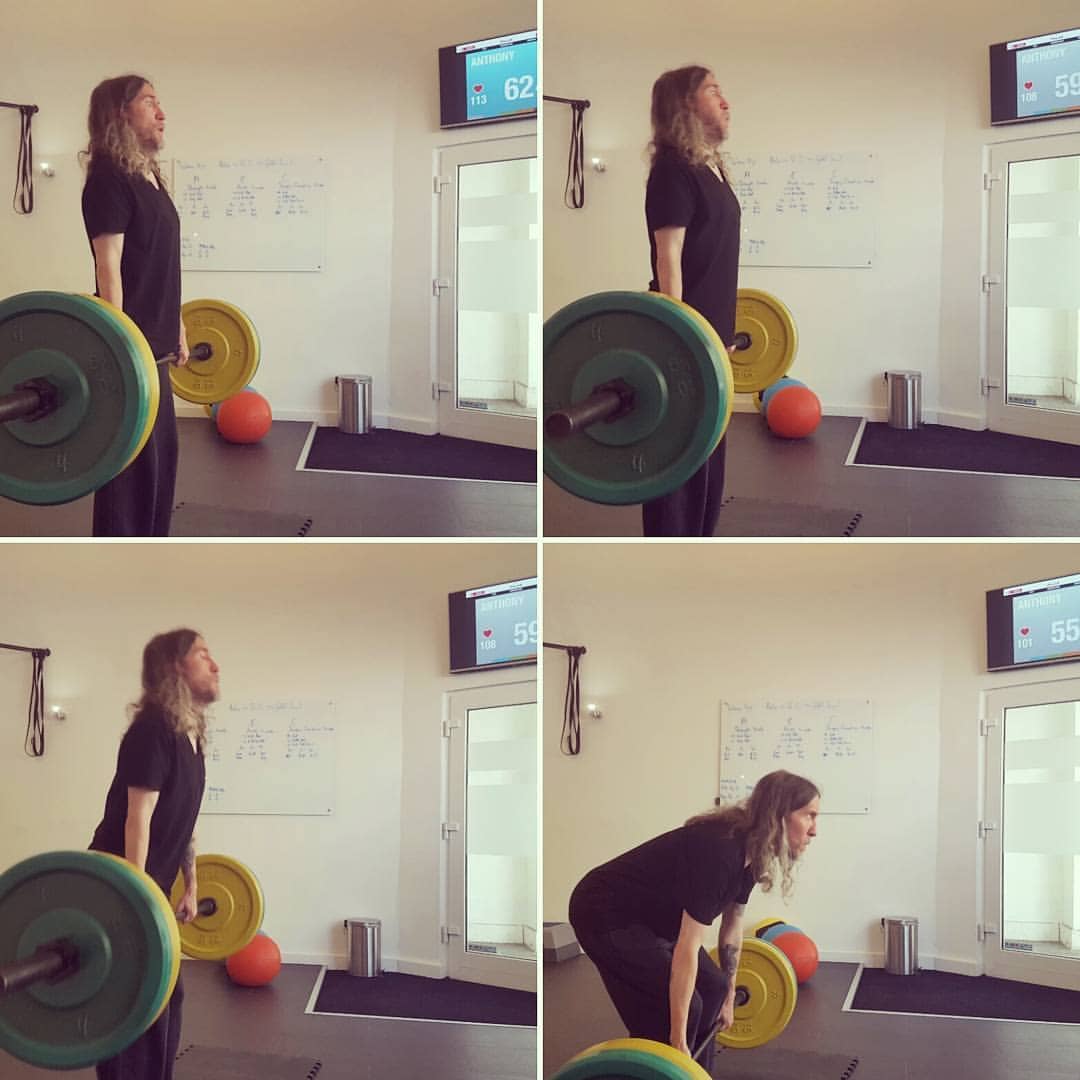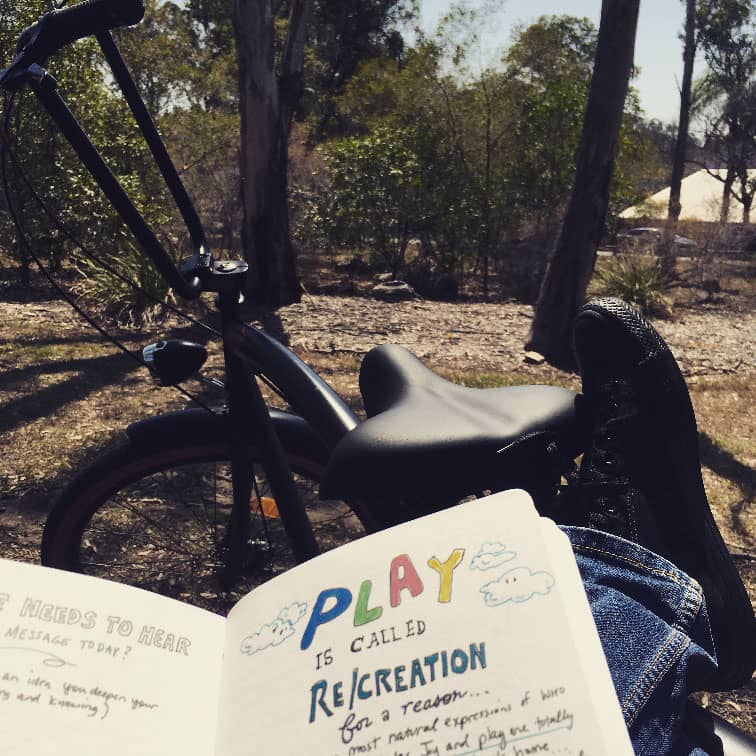 There are many ways to slow and reduce your cognitive decline.
There are many ways to slow and reduce your cognitive decline.
It’s also possible to enter an upward spiral if you or a loved on is suffering issues like early onset dementia.
My mom completely turned hers around, for example.
And ever since supporting her through the turmoil of losing basic memory abilities and overall thinking skill, I’ve been preparing myself for my twilight years.
On this page, you’ll discover everything I’m doing as a renowned memory expert, author of bestselling memory improvement books and practitioner of many brain exercise routines.
I’m going to go beyond your typical suggestions around diet and fitness too.
Because let’s face it:
We know what to do in these areas. The real challenge is how do you get yourself to change?
Forming new habits is the key and often, it’s deeply conditioned patterns held in memory that hold you back from positively transforming your mind and memory.
Ready for a wealth of tips and strategies?
Let’s dive in!
9 Ways To Reduce Or Slow Your Cognitive Decline
(Or Help Someone Who Needs It)
As we go through this list, please understand that there’s no special order of importance.
Each action item matters.
One major trick to make change in your life is to:
- Commit to taking action
- Scheduling time on the calendar
- Regular journaling to assess progress and plan for needed changes
These days, we’re lucky to have experts on habit formation and change like James Clear and Mark Channon. They’ve both been guests on the Magnetic Memory Method Podcast, which regularly discusses positive habits for brain health.
When it comes to memory science, the findings are clear. Many of us need to retrain our procedural memory through deliberate practice so that we can consistently implement based on the suggestions below.
So the easiest way to get started is exactly what I said in the bullet points above: commit to taking action on at least a few items below. And pay special attention to my tips on how to get started.
If I sound annoying at any time, please realize that researchers have accounted for why this happens. Forming better habits can threaten the way you think about your current identity.
But as Aristotle pointed out in The Nichomachean Ethics thousands of years ago, “We are what we repeatedly do.”
Actually, that’s a paraphrase from Will Durant. The actual quote is more useful:
“… virtues are formed in man by his doing the actions … the good of man is a working of the soul in the way of excellence in a complete life … for as it is not one swallow or one fine day that makes a spring, so it is not one day or a short time that makes a man blessed and happy.”
So, forgive me if I seem preachy at any moment. I just happen to believe that Aristotle was right. Taking action to improve ourselves is something that not only requires doing. It’s a matter of ethics for the good of our own lives and how we influence others.
One: Get Your Nutrients In Order
If Aristotle says that we are essentially defined by our habits, we’re also what we eat.
The problem with following dietary advice when it comes to nutrition and cognitive health is that each person is different.
Yes, it’s good to read books about diet. But at the end of the day, you need to experiment.
Here’s how, based on a process I shared in my bestselling book, The Victorious Mind:
Keep a food journal. I spent weeks writing out everything I ate in one column and then tracking how I felt in another.
Over time, I worked out a diet with my wife for both my physical and cognitive health.
To make it easy to follow the dietary plan, we photographed it and hung it on a wall in the kitchen.
Again, this plan was worked out according to how I was reacting to various foods in my personal context.
To reduce your own cognitive decline, you’ll need to explore deeply what you’re eating and how it’s effecting you.
Effort? Yes.
But also worth it to improve your quality of life.
Two: Physical Exercise For Improving Brain Function
The influence of exercise on cognitive ability has been well-studied. As this study shows, getting enough aerobic fitness prevents the loss of brain tissue.
Likewise, resistance training has been shown to produce “neuroprotective and anti-inflammatory effects.”
That’s why I make sure to walk daily. I also squat with weights and do as many push-ups and plans as possible at least three times a week.

Although I deadlift a little less often, I still make sure to do that as well a few times a week. I’m so glad I started doing this back when I lived in Berlin because the positive effect on my thinking was immediately noticeable.
In fact, it’s something I enjoy immediately after each workout.
The cool thing these days is that there are lots of influencers of all ages on the Internet sharing everything from calisthenic routines to Qigong. If you aren’t following such people, make sure to supplement your daily online scrolling with plenty of examples that will nudge you towards physical activity.
Three: Stimulate Your Mind With Brain Exercises
I’ve shared countless brain exercises on this blog. They’re based on suggestions by experts like Dr. Gary Small and the world of neurobics.
One simple example of a stimulating brain challenge you can pick up right now is to develop dual-handedness.
In other words, write with your non-dominant hand.
Now, this suggestions is somewhat controversial. For example, Michael Corballis has suggested that the benefits of trying to induce ambidextrous skill have never surface.
By the same token, in the same Scientific American post I just linked you to, they admit that pianists (and by extension other musicians) use dedicated practice to deal with brain asymmetries in positive ways all the time. And “not at the expense of verbal specialization in the left hemisphere).
Personally, I’ve enjoyed fantastic benefits from playing guitar, some piano and a bit of drumming throughout my life. Learning to write with my non-dominant hand is just another neurobic exercise for me. And like mind mapping my business, which I also did with my non-dominant hand, I’ve had nothing but fantastic ideas flow as a result of brainstorming in this way.
Obviously, seek a doctor’s advice if you find this topic controversial or worrisome. So far, I would suggest that, as in some working memory studies, researchers are producing skewed results due to design limitations, and not necessarily asking the best possible questions. Yet.
In any case, there are many other activities to pursue, ranging from mentally stimulating activities to deliberate efforts to rewire your brain through meditation, journaling or doing your own research into which brain games might work for you.
In sum, thinking through these issues and running your own experiments with a variety of brain exercise will itself help you combat cognitive decline.
Four: How Social Engagement Creates Cognitive Longevity
As I discussed in my recent post on keeping your brain sharp as you age, one of the best things you can do is be social as much as possible.
The catch is that you need to be with positive people who do not cause you undue stress.
That’s because certain kinds of stress are closely linked to memory loss.
Now you have the secret: When you select the people you’re going to socialize with, make them positive folks who lift you up and never tear you down.
I suggest extending this to minor social activities as well.
If there’s a restaurant or cafe staffed with rude employees, frequent another place. By refusing to expose yourself repeatedly to unpleasant situations, even with strangers, your brain will benefit.
Five: Sleep Your Way To Cognitive Health
It’s well-known that sleep and memory are connected to your overall ability to think and solve problems.
The question that plagues many people is how to get enough sleep.
As someone who often wakes up earlier than I’d like, here’s how I’ve managed to get back to sleep with great success since I discovered the technique in 2008.
Shavasana is normally considered only in the context of yoga (which itself includes certain moves that improve memory and concentration).
One night while I was tossing and turning, I decided to turn the move into a kind of game.
Since Shavasana involves lying flat on your back without moving, I stopped trying to fall asleep and focused only on this yoga move.
Eventually, the body forced me to move and I rolled over and fell asleep. This is exactly what happens to me now almost every time I can’t get back to sleep.
It’s powerful, so if you want to get more sleep and protect your brain, give Shavasana a try. If it works for you, it’s pure simplicity.
For more ways to get to sleep, there’s a book called The Ultimate Sleep Remedy in the Magnetic Memory Method Masterclass.
Six: Take Care Around Technology And Your Cognition
According to a meta-analysis which confirms that too much screen time harms your mental processing, “it’s never been more important to assess the impact of too much use of screens on cognitive functioning.”
I’d say so. The consequences of exposing yourself to too much online time go far beyond digital amnesia (forgetting what you’ve read, seen or heard online). You can expect to suffer:
- Psychiatric symptoms
- Increased loneliness
- Lower life satisfaction
- Reduced levels of exercise due to time spent on devices
- Poor academic achievement
- Physical symptoms like joint pain
So far, due to the exciting pace of technological innovation, many of my fellow memory experts are struggling to come up solutions and alternatives.
Personally, I do a lot of physical journaling, usually out in nature. I don’t take any devices with me and call it “digital fasting.”

The beauty of this practice is that I’m able to get in some aerobic physical fitness at the same time.
I also suggest you read exclusively from physical books, or at least as much as you can. Sometimes my research requires me to read online. But I avoid it as much as possible because I started noticing years ago that digital amnesia has a component worse than forgetting. It also harms comprehension.
For that reason, I use Zettelkasten while reading online. It’s essentially an advanced version of creating flashcards to memorize from. That way, I get the best of both worlds in a world where physical books are increasingly difficult to get.
Seven: Acknowledge And Handle Chronic Disease & Genetic Factors
Denial of key issues can be worse than the problem itself.
In other words, if you have suffered from a stroke or have inherited problems, wishful thinking is unlikely to help.
You can get great mental fitness by becoming a researcher of solutions others have found.
Rather than run from issues or ignore them, tackle them head-on. There’s never been a better time to do so than now, given the wealth of information and sharing in our time.
In fact, one study has shown that there’s effective help for people who are struggling to address chronic issues. Cognitive therapy helps people develop agendas for tackling their issues by making plans and following through.
Put simply: you’re not alone and experts are available to help you craft personalized assignments that will keep you moving forward.
Eight: Keep Learning Challenging Things
Although it’s normal to want an easier time as we age and face the consequences, one of the best thing you can do to keep your mind sharp is to keep learning.
Learning is a paradoxical activity because a lot of people balk the instant a challenge arises or something doesn’t feel “fun.”
Sadly, avoiding challenges deskills your mental strength.
Instead, pick something will truly challenge you and make a scheduled plan for chunking down the task into manageable steps.
There are classic learning goals to choose from when it comes to proven paths to maintaining cognitive sharpness and slowing its decline:
- Language learning
- Playing an instrument
- Memorizing poetry or scripture
- Study philosophy or history
- Complete a course
- Picking up new physical skills like a sport or dancing
The benefits of lifelong learning are immense when it comes to boosting your cognitive abilities across the board.
The best part is that these kinds of cognitive activities are rich with meaning. Unlike many brain exercises that involve going through a set of motions that might be helpful but don’t supply much satisfaction in and of themselves, becoming bilingual and knowing your key signatures in music feels substantial.
And that’s because these activities not only maintain your ability to think faster, but they actually are filled with emotional and tactile substance. They connect your mind to the physical world.
Nine: Teach What You Know
I’ve been around the world as a musician and a teacher.
And I can tell you one thing:
The students I’ve had who enjoyed the sharpest minds did not stop with learning.
They also shared the information they learned.
Teaching exercises your mind in some fundamental ways because it requires you to think about and expression your experience from a different perspective.
When you incorporate sharing with others your hard-earned knowledge, you can bring everything full circle:
You’ll enjoy more socialization and get exercise if you choose to walk to the community center or library where you present.
Better sleep will happen naturally too, knowing that you’ve approached all aspects of improving your mind holistically.
Get Involved In Your Own Plan To Reduce Cognitive Decline
As we’ve explored today, there are many simple tips and activities you can pursue.
Of course, simple does not mean easy.
And in most cases, we don’t want easy. We want a sufficient level of challenge in order to enjoy ongoing brain functioning that we can rely on.
The key is to take action and track everything you’re doing in a personal way that helps you develop yourself.
No one else can do these things for you.
And that’s what makes taking action so powerful.
You get to enjoy the rewards.
If you’d like more simple exercises related to enjoying better recall abilities, grab my free memory improvement course right here:
In just four video lessons and a few worksheets, you’ll go through what I believe to be the most substantial mental exercise and learning experience of them all.
That’s because you’ll learn the ancient art of memory, including the Memory Palace technique.
This special approach takes you through your entire life and shows you how to connect what you already know to new things you want to learn.
A final word to the wise:
Don’t avoid your cognitive decline issues.
And definitely don’t relegate improvement to someone else or a machine.
Take action yourself while you still can.
Your brain and everyone in your entire life will thank you for it.
The activities we discussed today work. And you should put them to work too.
Related Posts
- The Ultimate List of Memory Improvement Tips: 32 Simple Tactics
If you're wondering how to improve short-term memory, you need the right memory improvement tips.…
- Memory Loss Story And Memory Recovery Tips With Jennie Gorman
Memory loss is frightening. However, the solution may be simpler than you think. Jennie Gorman's…
- Memory Improvement Tips From Dr. Gary Small
Gary Small teaches you how to reduce your senior moments. They're not going anywhere, but…








